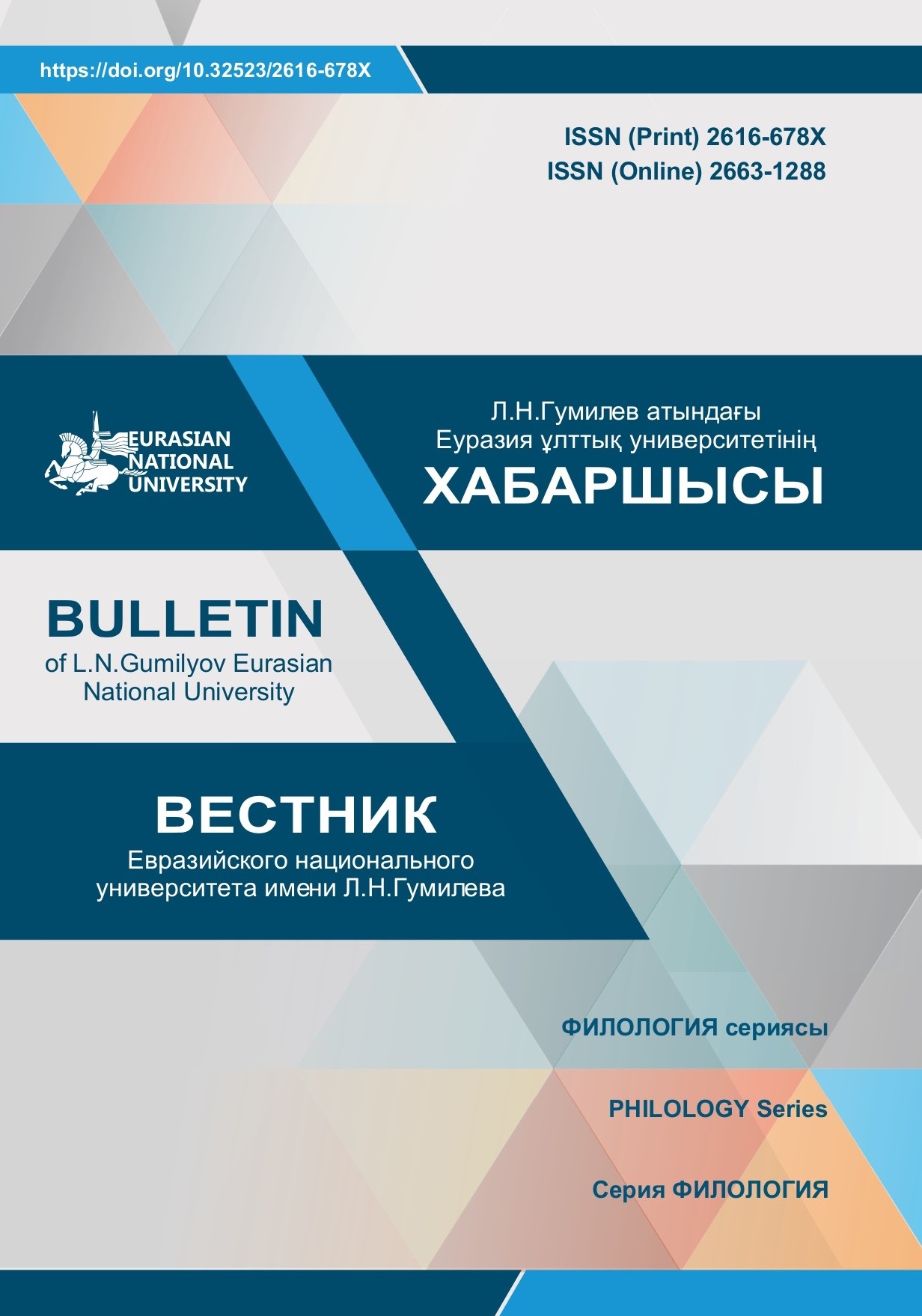Lexico-semantic features of national-cultural stereotypes in linguoculturology
Views: 239 / PDF downloads: 946
DOI:
https://doi.org/10.32523/2616-678X-2023-142-1-87-96Keywords:
лексика, лингвистика, лингвомәдениеттану, ұлттық- мәдени, стереотип, семантика, лингвомәдениет аспектілері, қарым-қатынас стилі, ағылшын тілі, қазақ тілі, орыс тіліAbstract
The article considers the issues of determining ethnic, national mentality and lexico-semantic features of national cultural stereotypes by comparative analysis of linguistic and cultural aspects of national stereotypes in Kazakh, English and Russian vocabulary. In the system of teaching English in higher educational institutions, based on the theoretical findings of domestic scientists in the teaching of a foreign language, lexico-semantic features of national-cultural stereotypes in linguoculturology have been developed, a comparative, structural-semantic, etymological analysis has been carried out. Considering the language as a part of culture, attention was drawn to the importance of knowing the differences between British and American versions of English. The fact is that there are differences in the use of English, which is considered the language of everyday communication in these countries. These differences are phonetic, grammatical, spelling, lexical, semantic. Therefore, the study of the connections and the influence of language and culture on each other on the scale of linguoculturology to determine the scope of language norms allows us to recognize the material and spiritual culture of an ethnic group in the linguistic picture of the world.

Downloads
Published
How to Cite
Issue
Section
License
Here is the academic English version suitable for publication on the journal website:
The academic journal “Bulletin of L.N. Gumilyov Eurasian National University. Philology Series” adheres to an Open Access policy for all published materials, based on the principle of free and equitable dissemination of scholarly knowledge. The Editorial Board believes that open access to research results contributes to the advancement of philological science, strengthens academic communication, and promotes the integration of national research into the international scientific community.
1. Free and Open Access
All articles published in the journal are made openly available on the official website of the journal and are accessible to all users without restrictions, registration, or payment.
Users are entitled to:
-
freely read and download materials;
-
copy and distribute the texts of publications;
-
print articles;
-
use materials for scientific and educational purposes, provided that proper attribution is given to the author(s) and the original source of publication.
2. Licensing
Journal materials are distributed under the terms of the Creative Commons Attribution-NonCommercial 4.0 International (CC BY-NC 4.0) license:
https://creativecommons.org/licenses/by-nc/4.0/
This license permits the use, copying, distribution, and adaptation of the materials for non-commercial purposes, provided that appropriate credit is given to the author(s) and a link to the original publication is included.
3. Benefits of Open Access
The Open Access policy ensures:
-
increased visibility and citation of scholarly publications;
-
prompt dissemination of research findings in the fields of philology, linguistics, literary studies, and translation studies;
-
expansion of international academic cooperation;
-
access for readers to up-to-date scientific information without financial or technical barriers.
The Editorial Board is committed to ensuring transparency in editorial processes, maintaining high standards of peer review, and providing broad accessibility to research outcomes in the field of philological studies.









